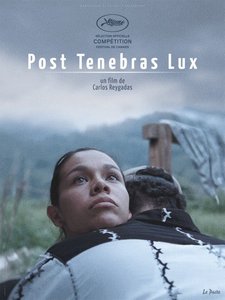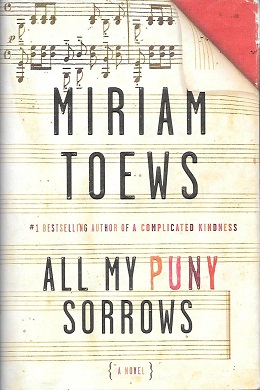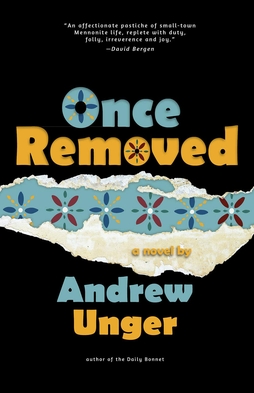The Evangelical Mennonite Conference is a conference of Canadian evangelical Mennonite Christians headquartered in Steinbach, Manitoba, with 62 churches from British Columbia to southern Ontario. It includes people with a wide range of cultural and denominational backgrounds.

Miriam Toews is a Canadian writer and author of nine books, including A Complicated Kindness (2004), All My Puny Sorrows (2014), and Women Talking (2018). She has won a number of literary prizes including the Governor General's Award for Fiction and the Writers' Trust Engel/Findley Award for her body of work. Toews is also a three-time finalist for the Scotiabank Giller Prize and a two-time winner of the Rogers Writers' Trust Fiction Prize.

Summer of '42 is a 1971 American coming-of-age film directed by Robert Mulligan, and starring Jennifer O'Neill, Gary Grimes, Jerry Houser, and Christopher Norris. Based on the memoirs of screenwriter Herman "Hermie" Raucher, it follows a teenage boy who, during the summer of 1942 on Nantucket, embarks on a one-sided romance with a young woman, Dorothy, whose husband has gone off to fight in World War II. The film was a commercial and critical success and was nominated for four Academy Awards, winning for Best Original Score for Michel Legrand.

A Complicated Kindness (2004) is the third novel by Canadian author Miriam Toews. The novel won the Governor General's Award for English Fiction, the CBA Libris Fiction Award, and CBC's Canada Reads.

Carlos Reygadas Castillo is a Mexican filmmaker. Influenced by existentialist art and philosophy, Reygadas' movies feature spiritual journeys into the inner worlds of his main characters, through which themes of love, suffering, death, and life's meaning are explored.

Silent Light is a 2007 film written and directed by Carlos Reygadas. Filmed in a Mennonite colony close to Cuauhtémoc, Chihuahua State, Northern Mexico, Silent Light tells the story of a Mennonite married man who falls in love with another woman, threatening his place in the conservative community. The dialogue is in Plautdietsch, the Low German dialect of the Mennonites. The film was selected as the Mexican entry for the Best Foreign Language Oscar at the 80th Academy Awards, but it did not make the shortlist. The film was nominated for Best Foreign Film at the 24th Independent Spirit Awards. It gained nine nominations, including all major categories, in the Ariel Awards, the Mexican national awards.

According to a 2022 census, there were 74,122 Mennonites living in Mexico, the vast majority of which are established in the state of Chihuahua, followed by Campeche at around 15,000, with the rest living in smaller colonies in the states of Durango, Tamaulipas, Zacatecas, San Luis Potosí and Quintana Roo.

Japón is a 2002 film by the Mexican director Carlos Reygadas. It was Reygadas' debut feature, which was shot on anamorphic 16-millimeter film in a 2.88:1 screen aspect ratio.
Kleine Gemeinde is a Mennonite denomination founded in 1812 by Klaas Reimer in the Russian Empire. The current group primarily consists of Plautdietsch-speaking Russian Mennonites in Belize, Mexico and Bolivia, as well as a small presence in Canada and the United States. In 2015 it had some 5,400 baptized members. Most of its Canadian congregations diverged from the others over the latter half of the 20th century and are now called the Evangelical Mennonite Conference.

Post Tenebras Lux is a 2012 drama film written and directed by Carlos Reygadas. The title is Latin for "Light after darkness". The film is semiautobiographical, and the narrative follows a rural couple in Mexico, with additional scenes from England, Spain and Belgium; all places where Reygadas has lived. The film competed at the 2012 Cannes Film Festival and Reygadas won the Best Director Award.
Mantarraya Productions, is an independent cinema production company funded in 1998. On their web page they define Mantarraya as; "... works as a platform for a new generation of filmmakers and has earned a reputation for promoting new talent".
Manitoba Colony is an ultraconservative Mennonite community in the Santa Cruz Department or eastern lowlands of Bolivia. Conservative plain dress Old Colony Mennonites from Mexico and Canada began moving to Bolivia in the 1960s. Manitoba Colony, one of dozens of Mennonite colonies in Bolivia, was founded in 1991 and named after a much larger colony in Mexico, which, in turn, has its origins in the Canadian province of Manitoba. The colony has a population of approximately 2,000. Members of the colony speak Plautdietsch, dress plainly, and do not use electricity or automobiles.

All My Puny Sorrows is the sixth novel by Canadian writer Miriam Toews. The novel won the 2014 Rogers Writers' Trust Fiction Prize, and was shortlisted for the 2014 Scotiabank Giller Prize, the 2015 Folio Prize for Literature, and the 2015 Wellcome Book Prize. Toews has said that the novel draws heavily on the events leading up to the 2010 suicide of her sister, Marjorie.

Mennonite cuisine is food that is unique to and/or commonly associated with Mennonites, a Christian denomination that came out of sixteenth-century Protestant Reformation in Switzerland and the Netherlands. Because of persecution, they lived in community and fled to Prussia, Russia, North America, and Latin America. Groups like the Russian Mennonites developed a sense of ethnicity, which included cuisine adapted from the countries where they lived; thus, the term "Mennonite cuisine" does not apply to all, or even most Mennonites today, especially those outside of the traditional ethnic Mennonite groups. Nor is the food necessarily unique to Mennonites, most of the dishes being variations on recipes common to the countries where they reside or resided in the past.

Andrew Unger is a Canadian novelist and satirist. He is the author of the satirical news website The Unger Review, as well as the novel Once Removed and the collection The Best of the Bonnet.
Mennonite literature emerged in the mid-to-late 20th century as both a literary movement and a distinct genre. Mennonite literature refers to literary works created by or about Mennonites.

Women Talking (2018) is the seventh novel by Canadian writer Miriam Toews. Toews describes her novel as "an imagined response to real events," the gas-facilitated rapes that took place on the Manitoba Colony, a remote and isolated Mennonite community in Bolivia: Between 2005 and 2009, over a hundred girls and women in the colony woke up to discover that they had been raped in their sleep. These nighttime attacks were denied or dismissed by colony elders until finally it was revealed that a group of men from the colony were spraying an animal anaesthetic into their victims' houses to render them unconscious. Toews' novel centers on the secret meetings of eight Mennonite women who, on behalf of the other women in the colony, must decide how to react to these traumatic events. They have only 48 hours before the colony men, who are away to post bail for the rapists, return.

Once Removed is a novel by Canadian author Andrew Unger published in 2020. Published by Turnstone Press, the book is a satire set in the fictional town of Edenfeld, Manitoba and tells the story of Timothy Heppner, a ghostwriter trying to preserve the history of his small Mennonite town.
East Village is a fictional town in the Canadian province of Manitoba, frequently used as a setting in novels by Miriam Toews. The town was based on Toews's real-life hometown of Steinbach. East Village appears in A Complicated Kindness and All My Puny Sorrows as well as the film adaptation of All My Puny Sorrows. Toews also refers to Steinbach in Fight Night and her nonfiction work Swing Low.














